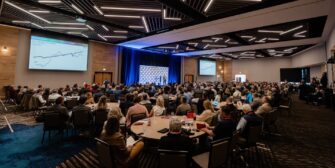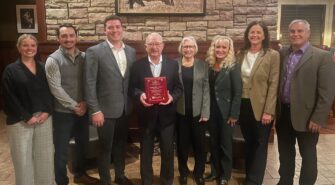Preview a ‘taste’ of family business at one-of-a-kind dinner
Recent News
For Agatha Johnson, the roots of business ownership go deep – back to her great-grandfather Edward Kappenman, who immigrated from Germany and purchased farmland in north-central South Dakota in 1919. Edward’s son, George, took over and grew the operation, and his son Wilfred continued it.
Johnson’s brother Damian then led it, and now his daughter, Nicole Huber, and husband, Kirk, are taking over the operation while a partnership of siblings continues to own the land.
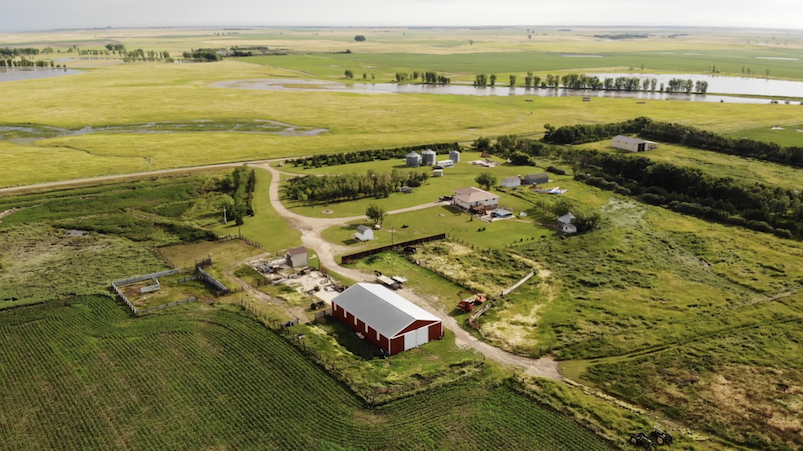
“Still to this day, my siblings and I gather together at least twice a year intentionally to keep in touch with each other and continue our strong relationships that go beyond the farm,” Johnson said. “One of our values is ‘strong relationships with family,’ which was built on over time and helped all of us to align the group and the purpose of continuing forward.”
Johnson’s own company also centers around family businesses. She formed WillKate in 2013, originally as Prosperity Wealth Management and Generations to Generations, before rebranding with the new name in 2020 to honor her parents following her mother’s passing.
The firm has offices in Aberdeen and Sioux Falls and offers a variety of services supporting family businesses, including transition planning, strategy and governance, leadership development, conflict resolution and wealth management.
“Over time, everyone is wondering what their purpose in life is,” she said. “I have been extremely fortunate to have found mine while honoring my family history. I have had many opportunities to have successes and failures in life that have helped me to grow. Everyone must find theirs.”
We learned more from her about how her experience with a family farm translates into how she helps other families today.
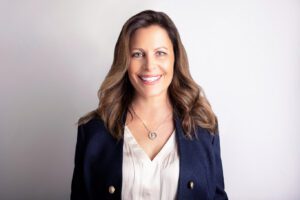
What were some of the biggest takeaways you learned as part of a family building on a farming operation?
The importance of having strength in relationships and the why for staying together. Those two are at the top of the takeaways. Other key takeaways were having clear communication channels, a purpose and vision, follow-through from each person and a clear strategic plan, which was to have the farming operation continue on for generations. With so many involved, there needed to be an understanding of what the succession was going to be. Not everyone wanted to work on the farm operation, and some did. One of my brothers stayed on the homeplace, and my father helped some of my other brothers begin additional farms in North Dakota, which are still operating today. The main products were grain and cattle along with dairy. Our parents taught us to navigate life’s challenges through faith, resilience and perseverance.
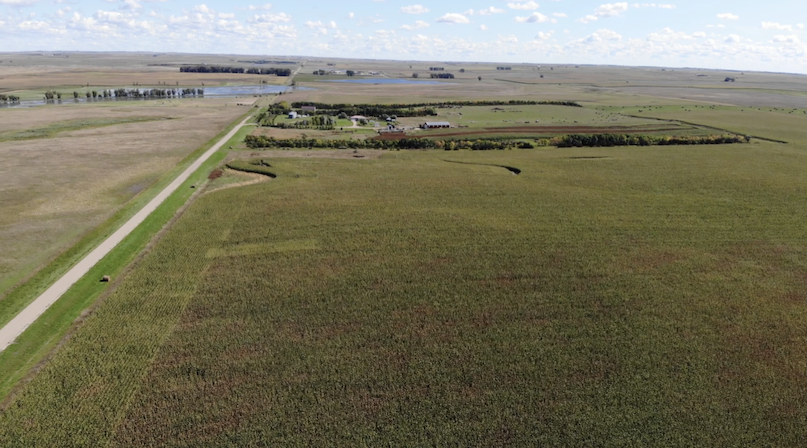
I remember some trying times that could range from economic conditions, political conditions, weather conditions and even wars and their impact. Those conditions resulted in conversations as to what was next and how to handle whatever the situation was. There were also great times, which opened the window to grow and make proper moves to continue into the future. The business of having a farming operation is no different than any other business. You must understand the industry, how to market your products and services, having proper cash flows, profit margins, operating equipment and taking time to complete annual planning in order to work towards your vision. There were many times I went to the bank with my father as he discussed the purchase of land or an operating line as the season began. In our one-on-one times, he would talk about the importance of diversification that is needed due to the uncertainty of markets at times.
What are some elements you keep in mind in your family partnership that might be helpful to other family businesses?
There are six elements we have intentionally studied on, experienced personally and see in all of our families that are important to work on in order to have a strong multigenerational family with shared business/wealth: financial, structural, family, human talent, community, beliefs and giving to others. Each one will be different for different families. For my family, relationships, faith and diligence in working has continued to show through. The owners of any shared asset also must discuss what it means to them to own, what is expected of each owner as well as what the owners expect in return and consider all when making plans for the shared assets/business(es). If it isn’t discussed, there will be unmet expectations, which will begin to erode relationships, business decisions and/or personal goals. Our family went through many of the same emotions and had the same hard conversations that all of our clients have and families need to have.
What made you decide to start WillKate?
I started my firm because I not only experienced what happens when important conversations are not taking place within the family, but also seeing it in clients when I worked with them while in the corporate world for over 20 years. I realized most found it difficult to communicate with their family members or business partners and not know how to work on their own wealth plan when they weren’t sure what was going to happen with one of their largest shared investments: the business(es)/wealth. I found it to be more the norm than not when relationships were challenged or even destroyed due to the lack of communication, the lack of a meaningful shared purpose and vision, unmet expectations, no intentional leadership development, lack of trust or even the technical/literacy of the shared capital/business. The way things were handled also didn’t allow for openness, sharing of ideas, continuing the entrepreneurial spirit that is so vital to families and business as well as our communities and country at large. There had to be a way to keep and grow strong relationships and have the opportunity to sustain and grow businesses and their wealth. This became my purpose and vision for WillKate.
What niche are you trying to fill in the industry?
We specialize in multigenerational family transformational development and transition planning. Our multidisciplined approach to working with families that own together creates the platform that helps to bring out their best and have them live their best lives. We advocate for all generations and work with them to purposefully build an owner’s mindset in all owners, levels of generation and prospective owners. We understand the challenge and the opportunity families have that own shared assets. We understand how important the relationships are, their leadership and service are, making sure to encourage family talent and specifically understanding family and family systems. The work we do will have long-lasting effects for many generations.
WillKate is also a family business, with your son Justin Aman working alongside you. How have you defined your roles and what strategies do you employ working as your own multigenerational family business?
My son Justin started with the company at the onset almost 10 years ago in a support role as a senior in high school. He now has his master’s degree in clinical psychology and is currently finishing up a research program at the University of Minnesota. Justin’s role has evolved over the last 10 years, and he has grown into being a great consultant and advocate for our families.
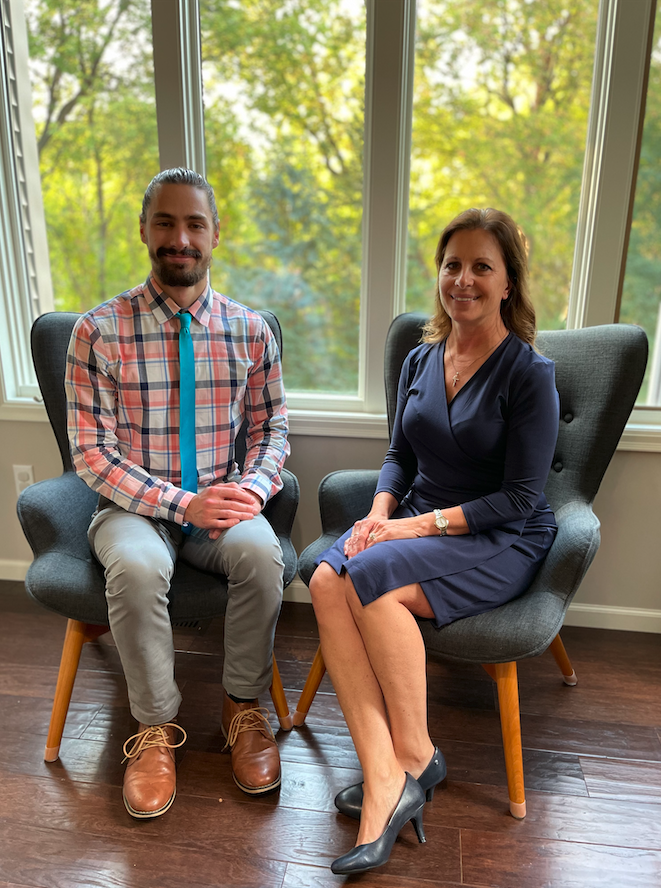
Allowing Justin the opportunity to develop and thrive where he is best follows many of our values and most importantly the continuous development of individuals. My son and I respect each other as professionals and have a very open relationship that we can be vulnerable with each other. We have grown together in our working relationship and have learned the boundaries that are important to keep so lines don’t get crossed when we are working.
What are some of the most common family business issues you experience with your clients, and how do you help guide them through those?
Some of the most common issues are lack of communication, lack of clarity of individual and shared purpose and vision, lack of a career path, hoarding of information, lack of trust, no time for relationship-building and personal unmet expectations. I have also found when there is no venue to have vulnerable conversations and voices heard, there is a tendency to have a culture of judging or shame and avoidance of the challenges. Many times, the judging and shame may stem from addiction issues, mental health concerns, in-laws not allowed to give voice, one person controlling or if next gen is disagreeing with the existing in charge generation. If the entrepreneurial spirit isn’t developed along with leaders in each generation, then the business(es) will be at risk for becoming obsolete. We know this isn’t for the faint at heart, yet if the dream is to have a multigenerational family business, then all must be discussed. If they do the work, their dreams become a reality as they have cleared a path forward and for the future. All too often, it can be easier to continue to blame others and be a victim, which keeps everyone stuck. Forgiveness isn’t about the other person; it is about yourself in order for you to move forward and fulfill the larger purpose. I have seen this restated in different ways and always felt it should be reiterated again and again. Forgiveness doesn’t mean that you’re saying that the other person is “right” or that what they did is/was “OK.” Forgiveness is about choosing – and re-choosing – to let go so that you don’t get stuck living in the past.
Many business owners, especially families, are mindful of their legacy – both within the business and the community. What are the steps you’ve found most beneficial in ensuring they are able to leave the sort of legacy they desire?
Legacy can be described by way of financial wealth to family members as well as giving financially to communities. The processes we have built out help families uncover their deeper purpose through open and trusting conversations. It is about having deep clarity of their ideal life and beyond. We have found when families begin to journal about deeper beliefs and their own passions and are comfortable to share collectively, they find a legacy that will live forward in generations. The family stories that are shared, hardships, opportunities and successes will honor the path and make way for continuous creation of the future. It is about finding Significance, Meaningful, Attracting, Rewarding and Timely family goals – SMART goals.
How have you connected with the Prairie Family Business Association, and what value have you found in it?
I have been a part of the Prairie Family Business Association almost 15 years and a sponsor almost 10 years. I believe in their vision and mission, which is near and dear to my heart. I have found they are a great connector of people, families, education and continue to build on their purpose. I meet great families and people who all have a reason for showing up. They want to continue to develop themselves, their families and their businesses. Stephanie Larscheid and her team continue to develop and carry the vision and mission of the organization, one that WillKate is proud to sponsor.

